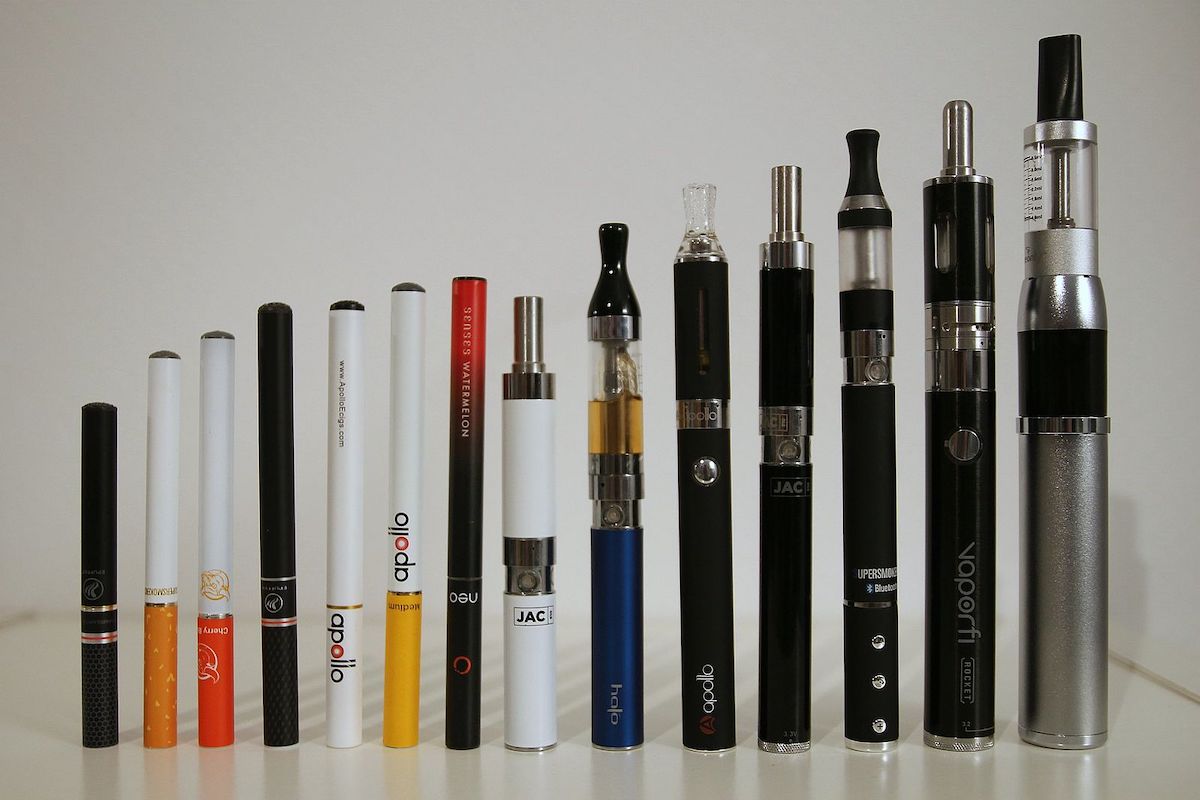People in the United States have become increasingly likely to find that nicotine vapes help them quit cigarettes, according to new research.
The study, published in the Nicotine & Tobacco Research journal, evaluated US population-level trends in adult cigarette quitting rates between 2013-2021.
In the earlier period, between 2013 and 2016, the researchers found no essential difference between those who used vapes and those who didn’t: The quit rate in both groups was 16 percent.
But in more recent years, from 2018-2021, people using vapes had a quit rate of almost 31 percent—much higher than the rate of around 20 percent for people who didn’t use vapes.
“Our findings here suggest that the times have changed when it comes to vaping and smoking cessation for adults in the US,” lead author Karin Kasza, of Roswell Park Comprehensive Cancer Center in New York, said in a press statement.
Why might this change have happened?
Dr. Kasza was careful to note that the study “doesn’t give the answers” to this question. However, the discussion section of the paper suggests a number of potential factors.
Development of vaping products potentially led to them becoming more satisfying, and therefore effective, alternatives for people who smoked.
First of all, the researchers wrote, “Our full study period spanned a time in the United States when the ENDS [electronic nicotine delivery systems] marketplace was expanding; salt-based nicotine formulations gained market share in 2016 and ENDS products became available with increased nicotine yields over time.”
In other words, development of vaping products potentially led to them becoming more satisfying, and therefore effective, alternatives for people who smoked. “[D]esign changes leading to e-cigarettes that deliver nicotine more effectively should be investigated,” Kasza said.
The prevalence of both vaping and frequent vaping also increased during this period, the researchers noted. Though they didn’t elaborate on this, it seems possible that spreading awareness of vapes as a smoking cessation tool might have led people to use them more persistently for this purpose.
Tobacco control laws also changed during the study period. Some of these served to make cigarettes less easily available, which might help explain higher switching rates. “[S]everal statewide Tobacco 21 laws were enacted,” the researchers wrote, while “federal-level Tobacco 21 became effective in December 2019.”
On the other hand, as the authors noted, “some states and localities imposed ENDS flavor restrictions, and federal-level ENDS enforcement priorities became effective in February 2020.”
Much research indicates the importance of flavor options to people who switch, and it’s likely that these moves hampered smoking cessation.
The researchers’ findings should be read with caution, they acknowledged, when other potential variables might include changing rates of people who smoke using safer nicotine products other than vapes.
The study “underscores the importance of considering contemporary data and circumstances when making public health decisions,” Dr. Kasza told Filter.
In addition, the COVID-19 pandemic changed their data collection methods, “including switching from in-person to telephone interviewing [in 2020], and in 2021, to both in-person and telephone interviewing.”
“We observed differences in the 2018/19–2021 cigarette discontinuation rates between those interviewed by telephone and those interviewed in-person,” they wrote.
But for all this, the notion that better vaping products lead to more smoking cessation would seem logical. The study “underscores the importance of considering contemporary data and circumstances when making public health decisions in a changing environment,” Kasza told Filter.
Such flexible openness to developing evidence was conspicuously absent, for example, from the World Health Organization’s February COP10 meeting of parties to its Framework Convention on Tobacco Control (FCTC). The WHO, which broadly opposes a number of tobacco harm reduction products, has followed up by repeatedly posting misinformation about vapes.
Derek Yach, formerly the founding director of the Foundation for a Smoke-Free World and executive director for noncommunicable disease at the WHO, wrote in a recent letter published by the Lancet that the FCTC “has not adapted to scientific and technological advances, and destined more users of toxic tobacco products to live shorter, less healthy lives.”
Yach said that the new research supported the findings of major international reviews and clinical trials on the superior effectiveness of vapes, compared to NRT, for smoking cessation.
“This now settled science that Nancy Rigotti stressed in a recent New England Journal of Medicine editorial should be used by physicians in advising their patients who smoke,” he told Filter.
“My recent Lancet letter builds on this evidence in calling on WHO to embrace tobacco harm reduction more broadly to save millions of lives,” he added.
Asked about the policy implications of her findings, Dr. Kasza replied that “vaping research is full of nuance, particularly as products and use patterns continue to evolve.” She also cautioned that the study considered only the experiences of adults, so its findings “should not be interpreted as providing guidance or data on youth vaping.”
She was unequivocal on this point, however: “Ultimately, the best science should guide under what conditions, if any, vaping products are beneficial to public health.”
Photograph by Vaping360 via Wikimedia Commons/Creative Commons 2.0
The Influence Foundation, which operates Filter, has received grants from the Foundation for a Smoke-Free World. Filter‘s Editorial Independence Policy Applies.




